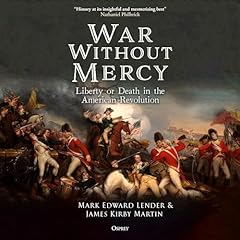
A Campaign of Giants: The Battle for Petersburg
From the Crater's Aftermath to the Battle of Burgess Mill, Volume 2
Failed to add items
Add to Cart failed.
Add to Wish List failed.
Remove from wishlist failed.
Adding to library failed
Follow podcast failed
Unfollow podcast failed
Get 3 months for $0.99/mo
 Prime members: New to Audible? Get 2 free audiobooks during trial.
Prime members: New to Audible? Get 2 free audiobooks during trial.
Buy for $30.09
-
Narrated by:
-
Paul Woodson
-
By:
-
A. Wilson Greene
Grinding, bloody, and ultimately decisive, the Petersburg Campaign was the Civil War's longest and among its most complex. A Campaign of Giants: The Battle for Petersburg offers a gripping, comprehensive history of the decisive campaign in the eastern theater. In this second of three volumes, A. Wilson Greene narrates the critical months from August through October 1864, during which Ulysses S. Grant's army group launched three major offensives against Robert E. Lee's defenses around Petersburg and the Confederate capital in Richmond. The Confederates counterpunched after each Union advance and conducted a spectacular cavalry raid that netted almost 2,500 cattle from Federal grazing grounds. But as winter approached, Grant had captured one of Lee's primary supply routes and extended the lines around Petersburg and Richmond to some thirty-five miles.
Greene's narrative chronicles these bloody engagements using many previously unpublished primary accounts from common soldiers and ranking officers alike. The struggle for Petersburg is often characterized as a siege, but Greene's narrative demonstrates that it was dynamic, involving maneuver and combat equal in intensity to that of any major Civil War operation.
©2025 The University of North Carolina Press (P)2025 Tantor MediaListeners also enjoyed...




















People who viewed this also viewed...








